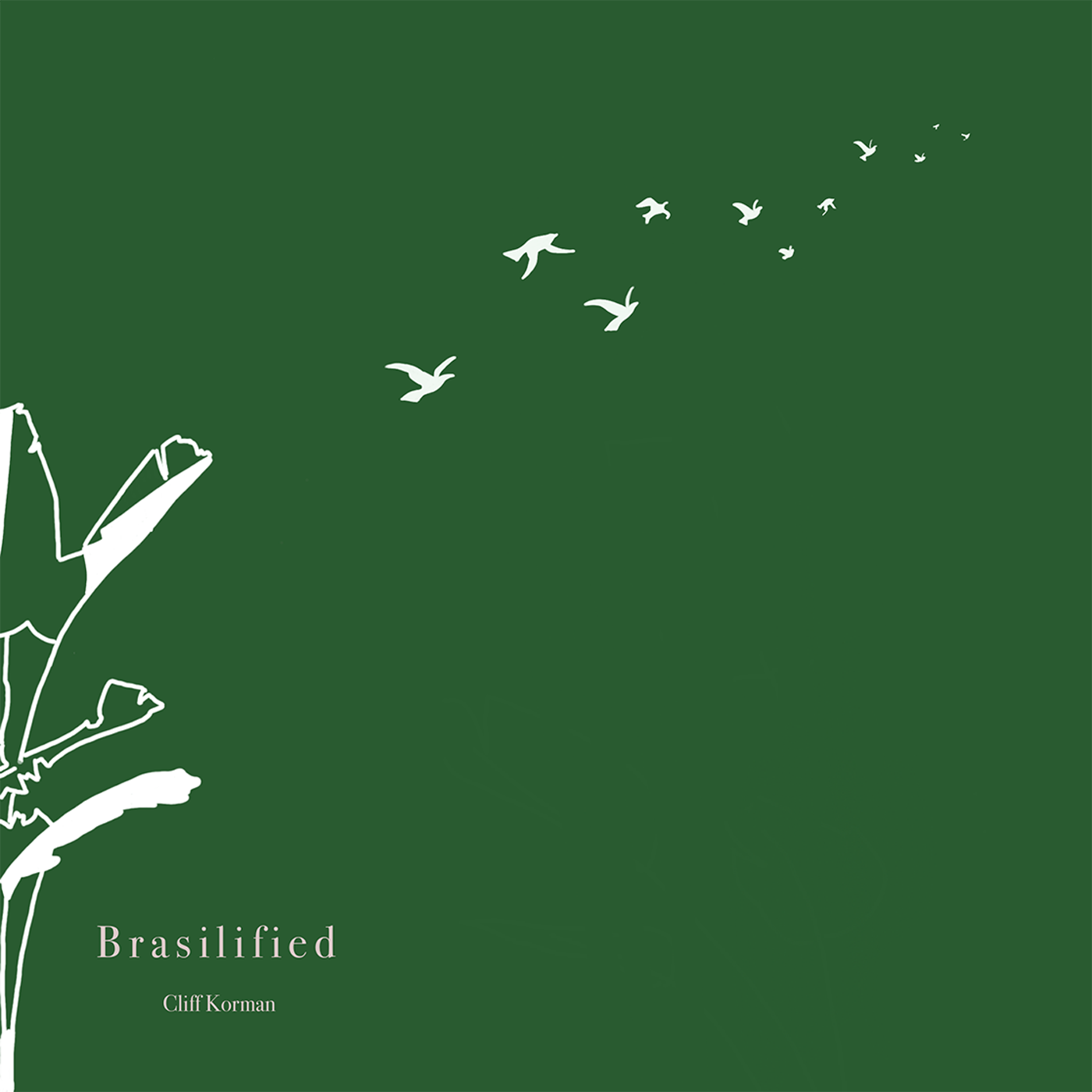
|
contents | jazz | |||||||||||||
| FYC FOR: Cliff Korman Brasilified  FOR YOUR CONSIDERATION FOR YOUR CONSIDERATIONPianist/Composer Cliff Korman Brasilified Latin Jazz Album Improvised Jazz Solo (Paulo Levi on Wayne Shorter's Speak no Evil) It's delightfully ironic that Cliff Korman is only now getting around to calling a project Brasilified. The NYC born pianist's majestic polyrhythmic adventure with his trio of bassist Augusto Mattoso and drummer Rafael Barata is simply the latest expression of a 40 year plus career steeped in the culture and music of Brazil. Though his multi-faceted resume boasts legendary names like Chuck Mangione, Gerry Mulligan and Jon Lucien, his encounter with Brazilian clarinetist Paulo Moura – whose expansive, alternately atmospheric and bustling and semi-experimental "Guadeloupe" bookends the 9 track collection – got Korman's musical passion on a Rio-leaning path that has blossomed in many directions over the decades. In addition to recording and producing numerous Brazilian projects, he's a longtime resident of the country and is on the faculty at the Villa Lobos Institute UNIRIO, teaching (naturally!) Brazilian Music and Improvisation. It's testament to Korman's unique flair for melody, mood swings and rich compositional instincts that his lone original, the whimsical, percussive, hard swinging title track, fits seamlessly among the gems he and his powerhouse cohorts (including guest saxophonist Paulo Levi on two tracks) interpret from the canons of Milton Nascimento (the soulful, wildly energetic and inventive "Viola Violar"), Antono Carlos Jobim (the warm and lyrical familiarity of "Triste"), Wayne Shorter (the punchy, improvisation rich sax and piano romp "Speak No Evil") and Angenor de Oliveira-Cartola (the elegant, meditational waltz "As Rosas Não Falam"). Just like Korman's life and career up till now, Brasilified is a true celebration of the multitude of jazzy possibilities the culture and its music leaves itself open to. -Jonathan Widran The JW Vibe Brasilified is available on streaming platforms here: https://cliffkorman.lnk.to/Brasilified DIGITAL ONLY RELEASE file under: JAZZ RELEASE DATE (Full album): AUGUST 12, 2022 Artist: CLIFF KORMAN TRIO Title: BRASILIFIED Artist Website: www.cliffkorman.com Release Dates: Label: Tiger Turn Cover Art: Darius Korman Track listing 1. Guadeloupe (Paulo Moura) 10:11 2. Viola Violar (Milton Nascimento) 8:05 3. Triste (Antonio Carlos Jobim) 6:20 4. Speak no Evil (Wayne Shorter) 6:20 5. As Rosas Não Falam (Angenor de Oliveira – Cartola) 10:39 6. Dininha (Alfredo da Rocha Viana Filho – Pixinguinha) 11:16 7. Da Cor do Pecado (Alberto de Castro Simões da Silva – Bororó) 6:09 8. Brasilified (Cliff Korman) 5:04 9. Guadeloupe: Reprise (Paulo Moura) 5:54 Musicians: Cliff Korman - Piano, arranger, composer, Augusto Mattoso - Bass, Rafael Barata - Drums, Paulo Levi - Alto Saxophone (Speak No Evil, As Rosas Não Falam) Throughout his career, Cliff Korman has always loved and been inspired by Brazilian music and modern jazz. At the same time, the pianist has consistently resisted the temptation to play in a predictable fashion, instead stretching out and coming up with fresh interpretations. Brasilified features Korman, along with bassist Augusto Mattoso and drummer Rafael Barata, really digging into a set of rich compositions in surprising ways. While the full album will become available on Aug. 12 as a digital-only release, it will be preceded by two singles: Wayne Shorter's "Speak No Evil" (July 29) and Antonio Carlos Jobim's "Triste" (Aug. 5). The program begins with a lengthy exploration of clarinetist Paulo Moura's "Guadeloupe." From its atmospheric beginning to the intuitive interplay by the musicians, this intriguing performance is full of passion and adventure. Following is a soothing melody by Milton Nascimento ("Viola Violar") that features Korman's soulful piano playing over the infectious groove. "Triste" is given a new harmonic setting, although its famous melody pops through. Altoist Paulo Levi guests on the next two numbers. "Speak No Evil" is taken for quite a ride with Levi and Korman constantly playing off of each other. "As Rosas Não Falam" is a contrast, a moody and melancholy ballad which develops into a jazz waltz, beautifully performed by the quartet. "Dininha" continues in that vein with particularly close interplay between Korman and bassist Mattoso. Korman interprets "Da Cor do Pecado" alone at the piano, thinking aloud at the keyboard while he explores several moods with quiet emotion. His original "Brasilified" is the most extroverted performance of the session, a joyful romp that is driven by drummer Rafael Barata. The continually stimulating set concludes with a second and briefer version of "Guadeloupe" that is no less adventurous than the opening rendition. Cliff Korman was born in New York, studied with jazz masters Barry Harris, Kenny Barron, Roland Hanna, Ron Carter and Dave Liebman, and obtained his doctorate at the Manhattan School of Music where he created and led the Brazilian Jazz Ensemble. In 1981 He met the Brazilian clarinetist Paulo Moura at the Creative Music Studio's World Music Institute in Woodstock and that was a turning point, resulting in a career that has included a rewarding series of modern jazz interpretations of Brazilian music. Along the way, the inventive pianist recorded with Gerry Mulligan, Astrud GIlberto, Ana Caram, Christy Baron, Chuck Mangione, Jon Lucien, and Corina Bartra, and produced a series of Brazilian-based music for the Chesky label, including Entre Amigos with Rosa Passos and Ron Carter. As a leader, he has headed such albums as Mood Ingênuo: The Dream of Pixinguinha and Duke Ellington, Rhapsody in Bossa (the music of Gershwin and Jobim), Gafieira Dance Brasil, Trains Of Thought, and Migrations. In addition Korman, who has long lived in Brazil, is on the faculty at the Villa Lobos Institute-UNIRIO in Rio de Janeiro, teaching Popular Brazilian Music and Improvisation. Cliff Korman is heard at his most creative throughout Brasilified which is arguably his most inventive set of Brazilian-inspired jazz to date. write your comments about the article :: © 2022 Jazz News :: home page |